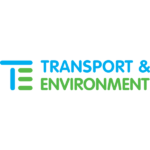Social leasing : Proposal for a green and innovative programme that supports both low-income households and industry
During his 2022 re-election campaign, French President Emmanuel Macron announced a social leasing programme for electric vehicles that would cap prices at €100/month for low-income households. But there has been a long list of stumbling blocks: high vehicle prices, a programme cost overrun, a shortage of vehicles, a lack of suitable French and European car models, and misgivings from the consumers targeted by the measure. T&E and IDDRI have put together a proposal for delivering a social leasing programme that would support both low-income households and industry. This paper outlines an eight-step plan for implementing a comprehensive social leasing programme that addresses consumer expectations, the issue of government funding and how to develop a supply of suitable electric vehicles.
- The programme should enable low-income households to lease an electric vehicle for a low monthly price: starting from €100 for a small car (including maintenance) and varying based on income and model (microcars, city cars, compact cars).
- The government should negotiate a contract with manufacturers, incentivising them to produce small, affordable electric vehicles in France and Europe.
- This would present a real economic opportunity for manufacturers and maintenance and repair providers. The programme would create a brand-new market, representing as many as 900,000 electric vehicles by 2030, or 15% of all electric vehicles projected to be in circulation.
- Leasing vehicles at a reduced rate would require not only government subsidies, but also more affordable products (at 30% lower prices): lighter, more economical vehicles with basic features, as well as reduced marketing and distribution costs made possible by a captive market.
- The programme would need to embrace circular economy principles (reuse, recycling, etc.) to optimise costs and reduce its environmental impact.
- While the central government would play a key role in the programme, it would also be important to involve regional stakeholders (local and regional governments, mobility platforms) in order to target eligible recipients and adapt the programme to their needs.
- The social leasing programme could replace France’s existing “ecological bonus” measure over a five-year period, at no increased cost. Transitioning the existing measure would help target subsidy recipients based on need and deliver a social justice outcome.
- Social leasing could become a pillar of Europe’s industrial policy. By incentivising manufacturers to supply more economical models that are fit for everyday needs, it would address not just industrial policy but also climate action and social justice.
The publication isn’t fully available in english, but you can download the executive summary.


